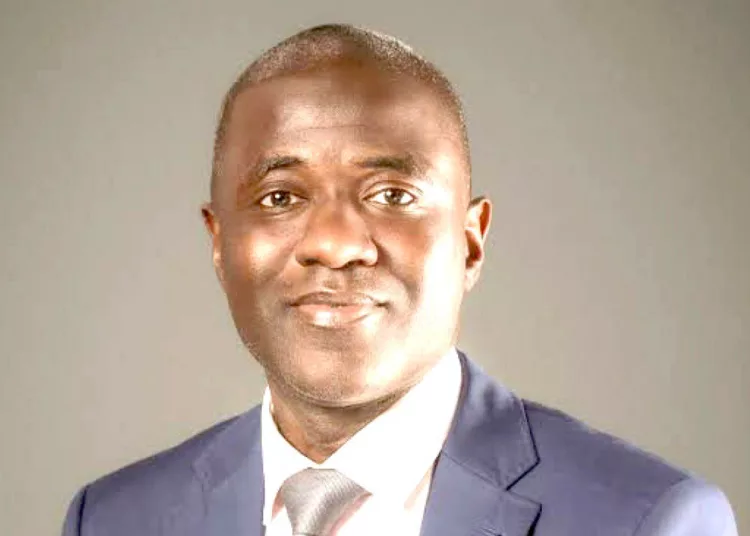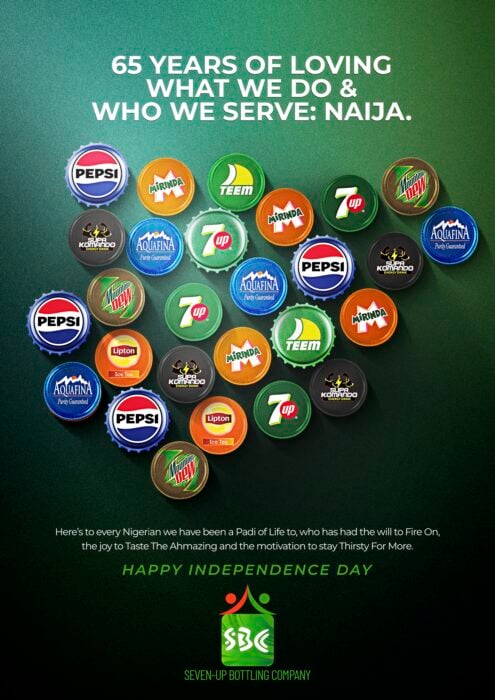Every three to four years, the International Telecommunication Union (ITU) organises and hosts the World Radiocommunications Conference (WRC). Its goal is to examine and possibly alter the Radio Regulations, an international agreement that controls satellite orbits and radio frequency spectrum usage.
The ITU decided to host the WRC this year. The WRC 2023, which took place in the United Arab Emirates from 20 November to 15 December 2023, brought together delegates from all over the world including Nigeria.
The outcome of this year‘s WRC-2023 no doubt, has a significant impact in shaping the future of 5G and the emerging 6G networks, hence the reason it thoroughly reevaluated spectrum requirements with a special emphasis on mid-band frequencies.
According to ITU secretary-general, Doreen Bogdan-Martin, “WRC-23 puts the world on a solid path towards a more connected, sustainable, equitable and inclusive digital future for all. Key regulatory achievements on spectrum for space, science and terrestrial radio services build on the momentum of ITU‘s ongoing work to achieve universal connectivity and sustainable digital transformation.“
Nigeria’s Participation
Minister of Communications, Innovation, and Digital Economy, Dr. Bosun Tijani, led the Nigerian delegation to WRC-23. Participants in this delegation included officials from the Ministry of Nigerian Communications Commission (NCC) and Nigerian Communications Satellite Limited (NIGCOMSAT), among others.
Aligned with Nigeria‘s National Broadband Plan and the UN‘s 2030 goals, their combined attention is strengthening the nation‘s resolve to attaining ubiquitous connectivity.
Furthermore, their concerted efforts aim to advance Nigeria’s telecommunications landscape, ensuring connectivity is available throughout the country. Through alignment with global initiatives such as the UN‘s measures and utilization of national strategic plans, the delegation hopes to accelerate the advancement of improved connectivity and digital inclusion across the entirety of Nigeria.
The highlight of the conference was the signing of the World Radiocommunication Conference 2023 Final Acts (WRC-23), an agreement on revisions to the global treaty governing the use of the radio frequency spectrum, both on Earth and in space.
Nigeria joined other member states to sign the agreement at the close of WRC-23 on 15 December, 2023.
The decisions made at the conference, including the updated and revised Resolutions, the Appendices, and the new and altered Radio Regulations provisions, are documented in the Final Acts.
Among the decisions, WRC-23 identified spectrum for International Mobile Telecommunications (IMT), which will be crucial for expanding broadband connectivity and developing IMT mobile services, also known as 4G, 5G and, in the future, 6G.
That new spectrum includes the 3 300-3 400 megahertz (MHz), 3 600-3 800 MHz, 4 800-4 990 MHz and 6 425-7 125 MHz frequency bands in various countries and regions. WRC-23 also identified the 2 GHz and 2.6 GHz bands for using high-altitude platform stations as IMT base stations (HIBS) and established regulations for their operations.
Using the same frequencies and equipment as IMT mobile networks, this technology offers a new platform for providing mobile broadband with little infrastructure. HIBS can help sustain connectivity during emergencies and help close the digital gap in rural and isolated locations.
The conference also determined new frequencies to provide high-speed broadband onboard airplanes, ships, trains, and automobiles for non-geostationary fixed-satellite service Earth Stations in Motion (ESIMs). Following disasters where local communication infrastructure is destroyed or severely damaged, these satellite services become even more important.
Provisions were included to protect ship and aircraft mobile service stations located in international airspace and waters from other stations within national territories.
To support the modernisation of the Global Maritime Distress and Safety System (GMDSS), WRC-23 took regulatory actions including the implementation of e-navigation systems to enhance distress and safety communications at sea.
The conference provisionally recognized the BeiDou Satellite Messaging Service System for GMDSS use, subject to successful completion of coordination with the existing networks and elimination of interference.
Tijani thanked the delegation for their sacrifices which, he noted, were made for the collective benefit of the future of Nigeria.
The minister also enjoined the Nigerian delegation to commence preparation for future conferences to ensure the preservation of the country’s interest by developing capacity through investments in extensive research and inter-agency collaboration.
In the same vein, the executive vice chairman of NCC, Dr. Aminu Maida, commended the delegation for collaborating towards Nigeria’s best interest, while emphasising the conference‘s significant importance for Nigeria.
According to him, “the agreements reached at this year’s conference will provide valuable spectrum resources that will benefit the Commission’s stakeholders, especially ordinary Nigerians by enhancing service quality and bridging the digital gap in rural areas.
“Additionally, the establishment of international standards for radiocommunications and the decisions made at the conference will impact the development and implementation of new technologies. These outcomes align with Nigerias overall objectives and the Honorable Minister’s Strategic Plan for the Ministry particularly on expanding broadband connectivity, in harmony with the global transition to 5G and future 6G technologies, as well as improving quality of experience and providing equitable access to all Nigerians.”
Election into ITU’s leadership working groups
Nigeria’s active participation has resulted in several significant milestones, as director of Spectrum Administration at NCC, Abraham Oshadami, was elected vice chairman of the ITU’s Radiocommunication Advisory Group (RAG).
Similarly, acting general manager and project manager at the Navigation Project Office of the Nigerian Communications Satellite Limited Dr. Lasisi Salami Lawal, assumed the role of vice chairman of the ITU-R Study Group Four (Satellite Services). Additionally, several members of the NCC delegation secured positions in the WRC 2023 Working Groups.
These elected Nigerian delegates are poised to elevate the country’s global standing within the telecommunications sphere. Their roles are pivotal in aligning Nigeria’s interests and objectives with global best practices. This alignment is crucial as the nation strives to implement the ambitious goals outlined in the National Broadband Plan.
The plan aims to ensure widespread connectivity in Nigeria by 2025, targeting minimum data download speeds of 25Mbps in urban areas and 10Mbps in rural areas, with adequate coverage reaching at least 90 per cent of the population. Moreover, it aims to maintain affordable pricing, not exceeding N390 per 1GB of data (equivalent to 2 per cent of median income or 1 per cent of minimum wage), thereby fostering greater accessibility to digital services for all Nigerians.
The NCC boss however expressed his excited about Nigeria‘s impressive performance at the conference.
While congratulating the successful delegates, Maida commended the minister of Communications, Innovation and Digital Economy, Dr. Bosun Tijani, who led Nigeria‘s delegation to WRC 2023, for “providing guidance, leadership, encouragement and support to the Nigerian delegation at the conference.”
“I am excited about the election of two of our colleagues, Engr. Oshadami and Dr. Lawal as Vice Chairs of the Key Study Groups. It is an honour for NCC and the Nigeria Communications Satellite Limited to have produced these two intellectuals as global radiocommunication leaders.
“Their positions will also ensure that our interests and goals aptly align with global best practices, especially as we work towards attaining the target set by the National Broadband Plan,“ he said.
He further charged them to live up to the huge expectations that the global radiocommunication community has placed on them by electing them into the roles.
The NCC boss also used his presence at the event to engage with the leadership of the ITU, as well as other leaders in the global telecom industry. He held meetings with the Secretary General of the ITU, Mrs. Doreen Borden-Martin, as well as the Secretary General of the African Telecommunications Union (ATU), Mr. John Omo, during which he shared his vision and priorities for the Commission, as well as potential areas of collaboration and increased Nigerian participation in the two unions.
Maida also met with directors at the ITU, including the Director of Telecommunication Development Bureau (BDT), Dr.Cosmas Zavazava; Director of the Radiocommunication Bureau (BR) Mr. Mario Maniewicz and the Director of the Telecommunication Standardisation Bureau (TSB), Mr. Seizo Onoe.
One of the meetings was also with his UAE counterpart – the Director General of the Telecommunications and Digital Government Regulatory Authority (TDRA), H. E. Engineer Majed Sultan Al Mesmar, where they shared their perspectives on effective regulation.







